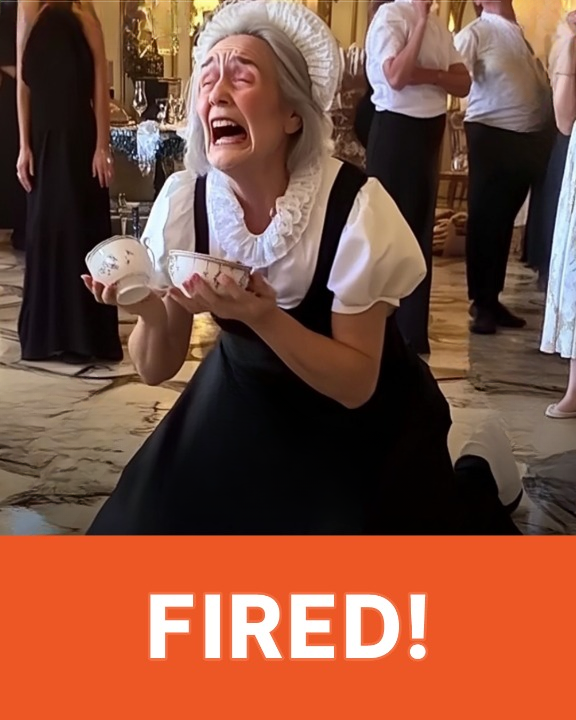
At an elegant afternoon gathering, a wealthy heiress publicly shames her elderly maid, but later discovers a forgotten diary that unveils a life-altering secret hidden for decades.
The sunlight caught the crystal chandelier overhead, scattering light like jewels across the long, polished dining table. Everything in the house whispered luxury, from the imported marble countertops to the velvet chairs surrounding the table where five well-dressed women sipped fruit-infused water and complimented their hostess.
Helen, draped in a rose-colored silk robe, stood at the head of the table, basking in praise for her perfectly curated home. She accepted the compliments with a graceful smile, confident in her status and taste. Among the guests was a younger woman named Carol, new to the social circle and clearly trying to find her footing.
When Carol innocently asked about Helen’s parents, a chill passed through the room. Helen stiffened, brushing the question aside, and explained that her mother had left when she was young, adding vaguely that she was “unstable.” A bell was rung, and Mae, the elderly maid, appeared—quiet, gentle, and clearly weary with age.
Helen dismissed her coldly, mocking her age and competence. Moments later, a crash shattered the moment—Mae had dropped the tea tray. Helen exploded in fury and fired her on the spot, in front of everyone.
That night, when the house had fallen silent, Helen found herself wandering into Mae’s empty room. Something beneath the cot caught her eye: an old, worn leather diary.
Against her better judgment, Helen began to read—and what she found unraveled everything she believed about her past.
Mae had once loved a man named Charles. When she became pregnant, he turned cold, eventually taking the child from her and declaring her unfit. The child’s name? Helen.
The diary revealed that Mae had secretly returned decades later, after Charles’ death, to watch over Helen as her maid—never revealing the truth out of fear she’d be rejected.
Helen was stunned. The woman she had dismissed, humiliated, and discarded was her real mother.
Overcome with guilt and longing, Helen raced through the night to find Mae. When the door opened, Helen fell into her mother’s arms, crying, “I didn’t know, Mama.”
Mae forgave her. And from that moment, everything changed.
The grand house softened—its cold shine replaced by warmth and quiet joy. Mae moved into a guest room upstairs. The little silver bell Helen once used to summon her sat unused. Helen brewed the tea now, carefully, lovingly, the way Mae had always done.
When curious friends asked what had changed, Helen simply said, “She’s not the maid. She’s family.”
And from the kitchen, Mae’s gentle humming filled the house like a lullaby finally returned home.